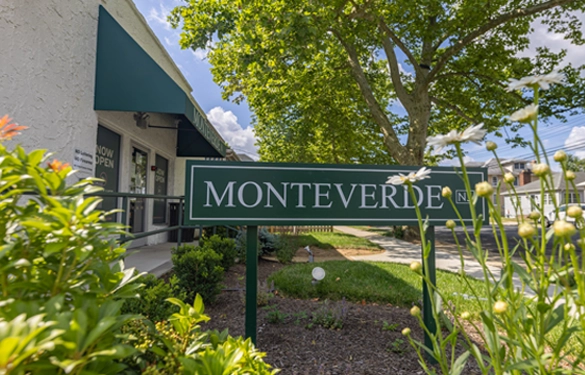
About Monteverde New Jersey
Monteverde New Jersey is passionate about providing the best medical marijuana products in the industry AND ensuring that all our patients have the best experience while using them. Everyone can benefit from an informed medicinal marijuana experience by following the New Jersey state Laws and the simple tips provided here.
Limits of Rights to Possess and Use Cannabis
To legally purchase and use medicinal cannabis, you must be a registered patient or caregiver in New Jersey, with the Marijuana Cannabis Program. Be a resident of NJ -or- a registered patient in another state with a valid temporary New Jersey patient registration. Must present a valid ID proving you are at least 18 years old to purchase medical marijuana, or considered a pediatric patient diagnosed by a healthcare practitioner and a guardian registered as a caregiver visiting the ATC with the patient and listed on the registry card of the minor. Must be diagnosed with a qualifying medical condition by a New Jersey health care practitioner registered with the NJ Medical Cannabis Program.
Approved qualifying medical conditions include:
- Amyotrophic lateral sclerosis
- Anxiety
- Cancer
- Chronic pain
- Dysmenorrhea
- Glaucoma
- Inflammatory bowel disease, including Crohn’s disease
- Intractable skeletal muscular spasticity
- Migraine
- Multiple sclerosis
- Muscular dystrophy
- Opioid Use Disorder
- Positive status for Human Immunodeficiency Virus (HIV) and Acquired Immune Deficiency Syndrome (AIDS)
- Post-Traumatic Stress Disorder (PTSD)
- Seizure disorder, including epilepsy
- Terminal illness with prognosis of less than 12 months to live
- Tourette Syndrome
Maintain a valid physician certification and bono fide relationship with a physician who is registered with the program.
Legal Purchasing
Medicinal Marijuana must be purchased from an Alternative Treatment Center that the patient has identified as the center where they will purchase from.
Purchase Limits
Medical patients can purchase 3 ounces every 30 days; terminally ill patients are exempted from the maximum limits. The Medical Cannabis Program allows patients to purchase are dried flower, concentrated oils, lozenges, other chewable forms, pill/tablets/capsules, syrups, tinctures, drop, topical and transdermal lotions/salves, and sublingual cannabis products. Patients may smoke their medicine anywhere smoking is allowed. However, New Jersey’s Smoke Free Air Act prohibits smoking of any kind in most public spaces.
Side Effects of Cannabis Use and Possible Adverse Reactions
Cannabis use under safe and normal circumstances can have desirable effects. The physical and psychological effects of cannabis use vary from person to person. These effects can be impacted by underlying health conditions, physical health, interactions with other substances, and tolerance. The goals for many cannabis users include feelings of well-being, mild disorientation, or increased appetite. The THC in cannabis is a psychoactive compound that affects movement, balance, coordination, and judgment so safety is key to enjoying cannabis while avoiding negative outcomes. Three common side effects may include dizziness, drowsiness, and dry mouth. Medical with cannabis is low risk, however patients should especially be aware of side effects if they are pregnant, under the age of 25, elderly, have cardiac or psychiatric conditions, or those who are immunocompromised and are being treated with medication. Driving or operating any kind of heavy machinery while impaired dangerous and driving under the influence of any substance is illegal. Some possible adverse effects are extreme confusion, paranoia, anxiety or panic, extremely fast heart rate, increased blood pressure, delusions, nausea, hallucinations.
Product Potency and Strengths
Tolerance is a large factor in how cannabis products can affect you. If you are a new cannabis patient, proceed with caution; start low, go slow until you find your ideal dose. All cannabis products contain some combination of THC and CBD. The higher the THC content, the more intense the associated feelings of high, heavy limbs, euphoria, and relaxation. Different product types have different potencies and different cannabis strains have different potencies and strengths.
- Dried flower: 5-30% THC concentration; typically, smoked, or vaped
- Vape pens: use oil or dry herb: 10-60% THC concentration
- Concentrates: 40-80% THC concentration
- Edible products – these are measured by dose: MG or THC or CBD present.
- Edible products are measured by dose: MG of THC or CBD present and edible products purchased from a dispensary are dosed in pieces that are 10mg of THC or less.
Safe Cannabis Use Practices
Being a registered Medicinal Cannabis Program (MCP) patient comes with a responsibility to be compliant with New Jersey cannabis-related laws and regulations. Adherence to the law will minimize health risks and prevent legal infractions.
- Patients and caregivers should carry proper identification, including MCP cards, at all times.
- Medicinal cannabis should be kept in its original labeled packaging.
- Patients are encouraged to use medicinal cannabis only at home.
- Keep medicinal cannabis at home and only transport it when absolutely necessary.
- Do not share your does with anyone. Medical cannabis is intended solely for the consumption of the registered patient.
- Do not smoke on federal lands or buildings.
- Do not smoke in a private vehicle in motion.
- Patients and caregivers are not permitted to grow cannabis or be in possession of a cannabis plant.
- Do not operate an automobile, aircraft, railroad train, stationary heavy equipment, or a vessel while under the influence of medicinal cannabis.
- Do not transport medicinal cannabis across state lines.
- Patients should return unwanted medicinal cannabis to the ATC and provide a valid registry card and State-issued photo ID.
Alternative Methods for Use and Consumption
- Smoking Inhalation (putting fire to dried flower-bowl, joint, bong, etc.): Onset 2-10 minutes, peaks: 30-50 minutes, duration 4-6 hours
- Vaping Inhalation (vape pen, vaping dried flower in a vaporizer or concentrate): Onset 2-10 minutes, peaks: 30-50 minutes,
- Consumables/Ingestion (eating edibles, capsules, pills, tinctures, or drops: 1-2 hours, duration 4-12 hours
- Topical (external use on skin): onset and duration variable
Signs and Symptoms of Substance Abuse
Possible signs of substance abuse can include the following weight loss, constant fatigue, red eyes, little concern for hygiene, lab abnormalities, unexpected abnormalities in heart rate or blood pressure, depression, anxiety, or sleep problems.
Possible symptoms of substance abuse may include the following, using, or drinking larger amounts or over longer periods of time than planned, extended recovery time, craving to use drugs or alcohol, ongoing use that interferes with work, school or home duties, using drugs or alcohol even with continued relationship/physical/psychological problems are caused by use, giving up or reducing activities because of drug or alcohol use, taking risks, such as sexual risks or driving under the influence, developing a tolerance or need to use more to achieve the same effect, having withdrawal symptoms when not using, or using another substance to avoid such symptoms.
Substance Abuse Program and Resource Information
- State of New Jersey: Department of Human Services: Division of Mental Health and Addiction Services (DMHAS) DMHAS Website.
- For 24/7 help finding treatment, please contact DMHAS Hotline 1-844-REACHNJ (1-844-732-2465).
- In an emergency, always call 911.
- If the case of overconsumption is severe, contact the New Jersey Poison Control Center at 1-800-222-1222.
Tolerance vs Dependance vs Withdrawal
Drug tolerance occurs when someone uses a substance over a long period. When someone continuously uses a substance, their body becomes used to it, meaning the drug will stop having as much of an effect. When someone develops a tolerance to an addictive substance, they will begin taking a higher dose to get the same effects as before.
Drug dependence occurs when someone abuses high doses of an addictive substance, they may develop a dependence. Drug dependence refers to someone feeling like they cannot function normally without the use of the substance. A drug dependence can be either physical or psychological and can have many negative effects on someone’s life.
Drug addiction affects someone’s mind and behavior. Addiction refers to the inability to control the use of drugs or alcohol. Those who struggle with addiction may try to stop using the substance but will feel like they cannot stop even though they may be experiencing negative consequences from it. Those struggling with addiction must receive the proper help and support needed to stop.
Withdrawal refers to the physical and physiological impacts you experience when you cut back or stop using a substance you may have become addicted to, or dependent on. Symptoms can be severe depending on the substance, individual’s age, and physical health, and how much of the substance they use, and how long they have been using the substance.
Marijuana Withdrawal: The withdrawal process from marijuana is not considered to be life-threatening; however, in some individuals, there is always the potential for someone to exhibit poor judgment, be more prone to accidents, and even develop suicidal thoughts because of the distress and depression that can occur during cannabis withdrawal.
Thus, it is suggested that individuals who intend to stop using marijuana, especially individuals who used marijuana daily or nearly daily, discontinue use of the drug under the supervision of a mental health professional.
Symptoms of marijuana withdrawal are feelings of anger, irritability or aggressiveness, sensations of extreme nervousness or anxiety, disturbances with sleep that can include insomnia or very disturbing dreams/nightmares, a decrease in appetite that may or may not be associated with a significant loss of weight. Feelings of restlessness and general malaise, the onset of feelings of depression, physical symptoms that cause significant distress such as abdominal pain, fever, chills, sweating, headache, and/or tremors or shakiness.
Patient Pain Assessment
The use of a pain scale can help clarify certain aspects of a person’s pain. Some of these aspects are pain duration, severity, and type. Pain scales can also help measure the effectiveness of a patient’s treatment protocol and progress in a program.

Additional Patient Tools and Resources Available
- A “logbook” can help patients keep track of the strains used and their side effects. A logbook is to be used as a tool for tracking for tracking treatments.
- Important information about our Company.
- The State’s cannabis program, current rules and regulations, State and Federal Law and explanations and descriptions for safe and compliant cannabis use.
- A notice for requesting approval for the ATC to contact registered patients/caregivers with information concerning ongoing, peer-reviewed clinical studies related to the use of marijuana.